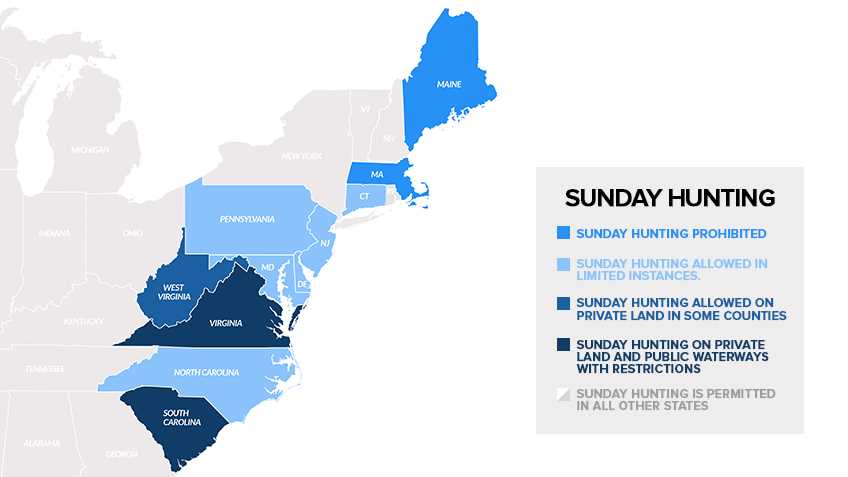Reasons to Lift the Bans on Sunday Hunting

In 19th Century America, "blue laws" restricted many activities on Sunday, including Hunting.
Other outdoor activities are allowed on Sunday, including those that take place on public and private property, such as fishing, hiking and golf. Restrictions on Sunday hunting effectively treat hunters as second-class citizens and tacitly endorse the view of animal extremists that there is something wrong with hunting. Such a view ignores the fact that hunting is part of America’s heritage and hunters contribute billions of dollars to wildlife and conservation programs, through license fees and revenues generated through purchases of firearms, ammunition and archery equipment.
Restrictions on Sunday hunting effectively treat hunters as second-class citizens and tacitly endorse the view of animal extremists that there is something wrong with hunting.
Laws prohibiting hunting on Sundays are among the last of America's "blue laws," and for many reasons should be repealed.
Monday, February 4, 2019
Tomorrow, the Senate Game and Fisheries Committee is scheduled to consider pro-hunting legislation, Senate Bill 147.
Thursday, January 17, 2019
The North Carolina Wildlife Resources Commission (WRC) recently announced it will hold public hearings across the State regarding ...
Friday, July 13, 2018
On July 11th, Governor John Carney signed Senate Bill 198 into law to expand hunting opportunities in Delaware by eliminating ...
Thursday, March 29, 2018
On Tuesday, March 27th, West Virginia Governor Jim Justice signed Senate Bill 451 into law. There will be ...
Tuesday, March 13, 2018
On Saturday, March 10th, the West Virginia Legislature adjourned sine die from the 2018 Legislative Session having passed ...
Friday, September 15, 2017
Next week, on Monday, September 18, the Environment, Natural Resources and Agriculture Committee will meet to discuss multiple ...
Wednesday, July 26, 2017
Yesterday Governor Roy Cooper signed House Bill 559 into law. The final version of HB 559 expanded on the Sunday ...
Friday, July 7, 2017
This week, multiple pro-gun and pro-hunting bills that were signed into law by Governor Jim Justice take effect.
Friday, June 30, 2017
After several days working with conferees, and in the final hours of the legislative session, the Senate adopted ...
Tuesday, June 27, 2017
Today, June 27, House Bill 559 is scheduled for second reading in the North Carolina Senate. HB 559, ...
 More Like This From Around The NRA
More Like This From Around The NRA






















